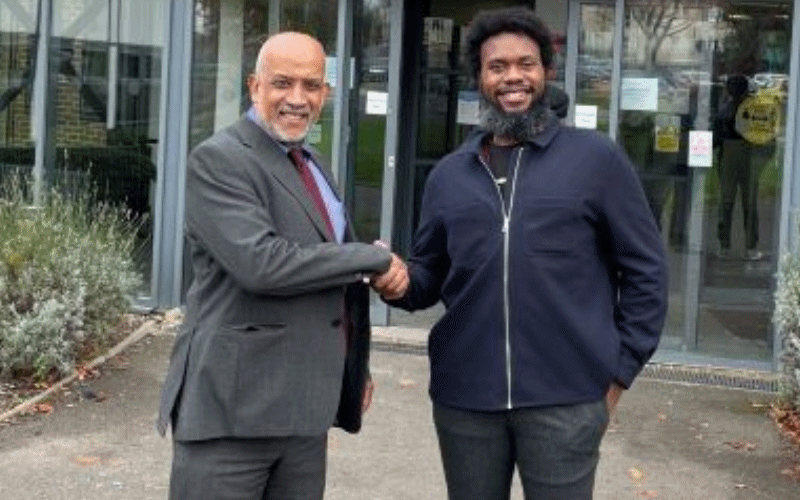An Uxbridge College graduate in higher level computing is working with Abbey Road studios to develop an Artificial Intelligence system to help artists write their lyrics.
Micah Brown, who graduated from the Higher National Diploma Computing course in 2009 then progressed to the final year of a degree at Brunel University London, popped into Uxbridge College to give a talk about the ‘BrainRap’ invention. He also hosted a visit to Abbey Road to demo the technology for music students.
BrainRap – developed in partnership with deep learning engineer CJ Carr – ‘listens to’ and analyses an artist’s work and generates lyric suggestions. The pair came up with the idea at a Massachusetts Institute of Technology ‘hackathon’ software development event, and the idea is now being developed at the Abbey Road Red music tech incubator.
Dr Darrell DeSouza, CEO & Group Principal HCUC, said: “Micah’s energy and creativity are without a doubt an inspiration, and it was fascinating to hear about the BrainRap invention and see it in action. It just goes to show what an incredible range of opportunities can come from studying technical qualifications such as the Computing HND at Uxbridge College, Harrow College and West London Institute of Technology.”
Micah said: “It was so great to be back at Uxbridge College again and meet some of today’s students and to see the staff again too. College really helped me on my way, and without it I am 100% sure I’d never be where I am now.”
“BrainRap and its underlying neurosentiment technology represents the future of the mental web – the ability to harness consciousness to enhance human computer interaction in digital environments – in this case, music creation.”
Abbey Road has been host to some of the world’s most celebrated recordings, most famously The Beatles, as well as James Taylor, Pink Floyd, Kate Bush, Kanye West, Amy Winehouse, Kylie, Muse, Sam Smith, Florence + The Machine, Ed Sheeran, Frank Ocean, Lady Gaga and Adele. It has also blazed a trail in music technology with some of music’s key technological breakthroughs, including the invention of stereo sound by EMI engineer Alan Blumlein, patented there in 1931.





